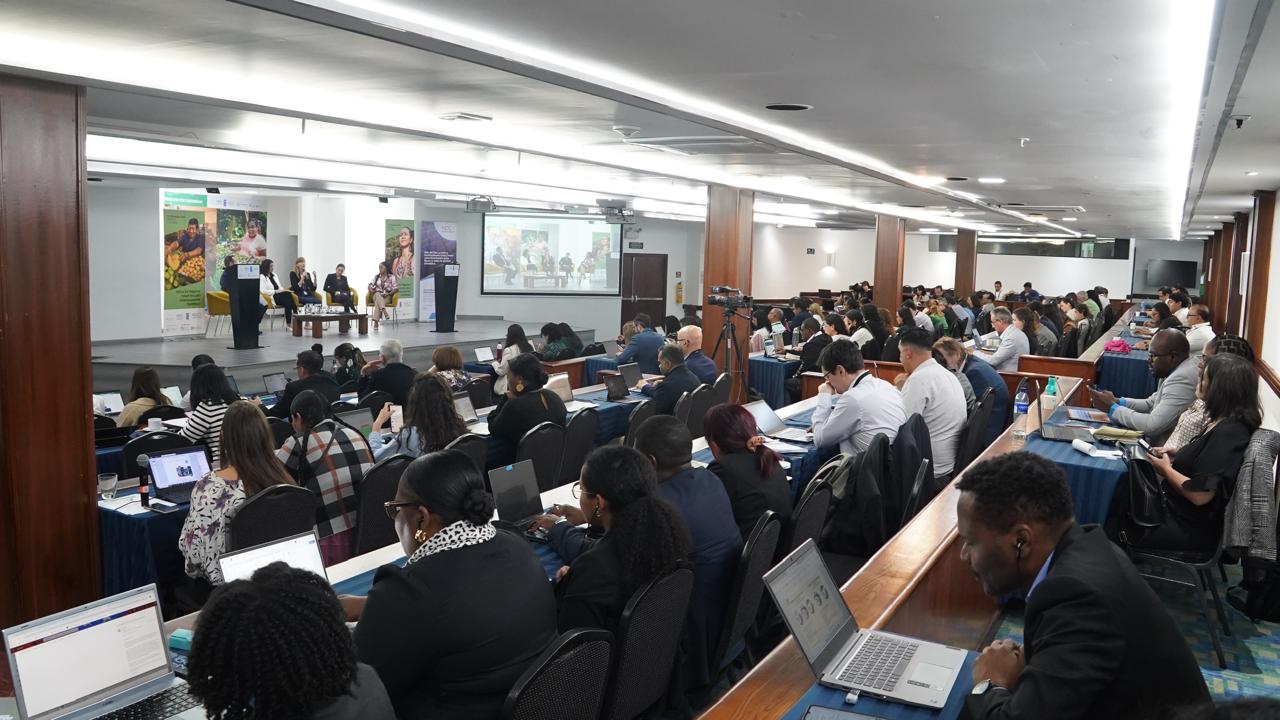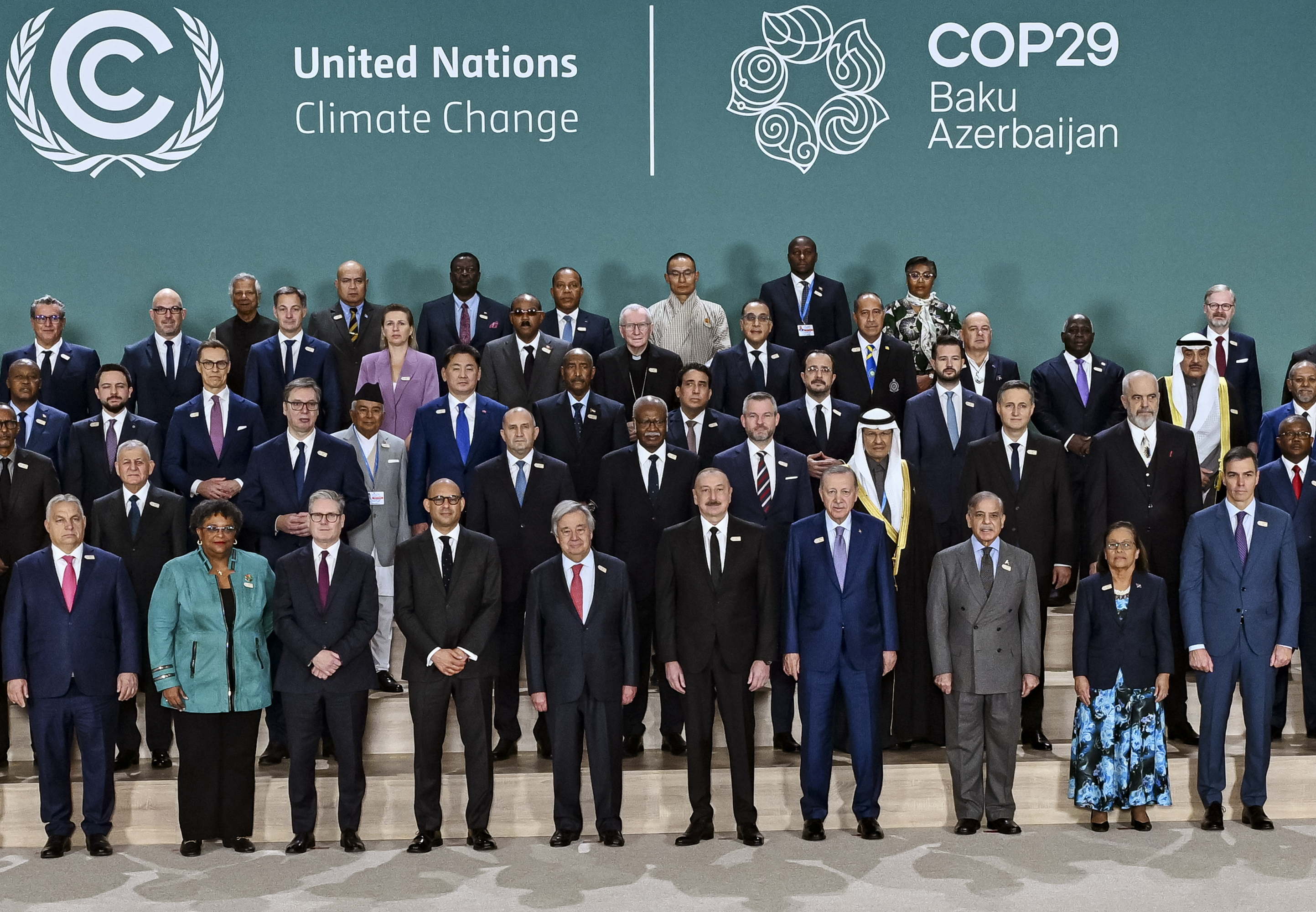Colombia is updating its climate commitments: these are the country's priorities, according to WRI Colombia.

Colombia is in the process of updating its Nationally Determined Contribution (NDC), the climate commitments the country will present later this year to the United Nations Framework Convention on Climate Change (UNFCCC) during COP30 in Brazil. In this new version, the country will incorporate, for the first time, the voices of subnational governments, communities, and local stakeholders, marking a shift toward more participatory, territorial, and inclusive climate action.
The emerging priorities of this process, led by the Ministry of Environment and Sustainable Development and WRI Colombia, reflect the most urgent needs of the territories: climate change adaptation, ecosystem restoration, water security, and nature-based solutions. This approach directly responds to the growing impacts cities and regions face from phenomena such as floods, landslides, and extreme heat waves.
“Local solutions are essential to achieving national climate goals. Listening to and prioritizing the proposals of regions and cities is critical to building an ambitious, fair, and viable NDC 3.0. At WRI Colombia, we will continue supporting climate governance that puts local communities at the center of action,” said Carolina Useche, director of WRI Colombia's Climate, Economy, and Finance program.

Carolina Useche, director of WRI Colombia's Climate, Economy, and Finance program. Photo: WRI
During the second half of 2024, WRI Colombia and the Ministry of Environment and Sustainable Development implemented a strategy to engage local governments in the NDC update process, an effort aligned with the country's commitment to joining the Coalition for High Ambition Multi-Level Partnerships (CHAMP) during COP28 in Dubai, which promotes closer collaboration between national and subnational governments in climate policy planning and implementation.
WRI Colombia supports the achievement of these goals through this initiative, which was supported by Bloomberg Philanthropies and the German Development Cooperation (GIZ), commissioned by the Federal Ministry of Economics and Climate Protection (BMWK) within the framework of the International Climate Initiative (IKI). It included five regional workshops with a participatory and inclusive approach. Representatives from more than 35 cities and departments, as well as young people, women, Afro-Colombian communities, government departments, and private companies, participated.

Attendees at the NDC 3.0 Regional Forum for Latin America and the Caribbean. Photo: Ministry of Environment
In the urban sphere, cities focused on adaptation measures aimed at strengthening climate resilience: riverbank restoration, wetland conservation, and expansion of green areas were some of the most notable proposals. Although mitigation actions were also formulated, these were less frequent and focused primarily on waste management.
For their part, the departments prioritized the protection of water sources and the promotion of community agroforestry. They also emphasized the urgency of establishing clear climate financing mechanisms, strengthening territorial planning, and accessing technical capabilities that will allow them to effectively implement the proposed measures.
At the same time, both cities and regions called for incorporating principles of just transitions and climate justice into the new NDC. This includes ensuring gender equity, human rights, ethnic inclusion, and peacebuilding. They also highlighted the complementary benefits of climate action, such as job creation, biodiversity conservation, and strengthening local economies.
One of the most significant conclusions of the process was the need to improve coordination between the national and subnational governments. According to Carolina Useche, "As an area for improvement, we found that incentives from the national government, both fiscal and financial, and political support are required so that local governments can implement the proposed measures."
What are NDCs and why do they matter? NDCs are Nationally Determined Contributions, the commitments each country establishes as part of the Paris Agreement. They include targets for reducing greenhouse gas emissions and adapting to the impacts of climate change. They are updated every five years with the aim of progressively increasing climate ambition. Colombia's updated NDC will be presented at the end of 2025, within the framework of COP30.

World leaders will gather at COP30, which will be held this year in Brazil. Photo: EFE
WRI Colombia will continue supporting sectoral workshops and analyzing progress in the implementation of NDC 2.0, determining which goals were fully met, which were partially met, and which were not. For the latter, the main obstacles and challenges that impeded their development will be identified, thus generating a comprehensive assessment that will serve as a basis for guiding corrective actions and strengthening future implementation capacity.
Additionally, the organization will provide support in the design of a joint roadmap between national and subnational governments, with milestones for 2026, 2028, and 2030. This will seek to accelerate the fulfillment of the commitments established in the NDC, promoting more effective and multisectoral coordination that will allow the country to move more decisively toward its climate goals.
Environment and Health Journalist
eltiempo





